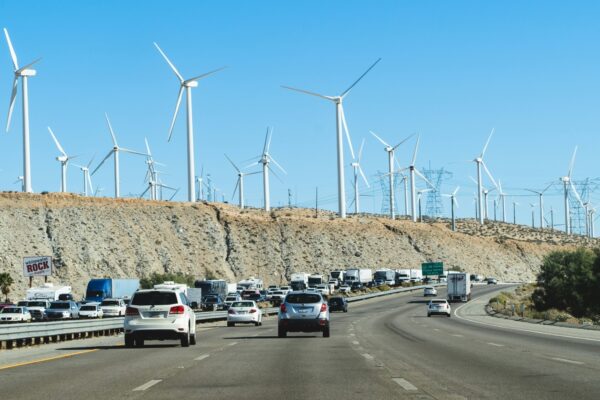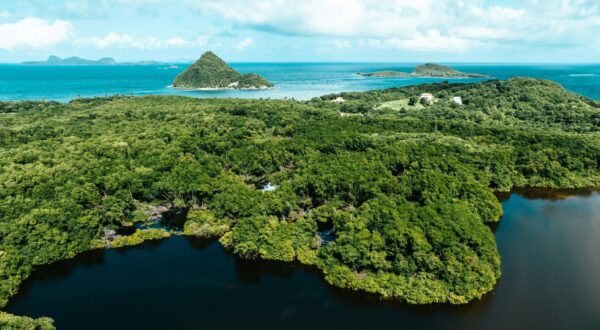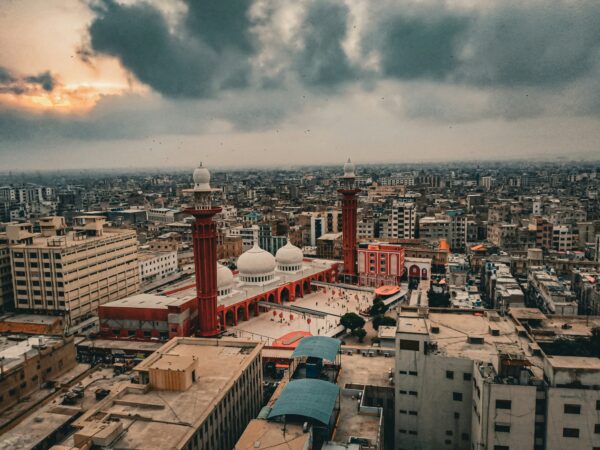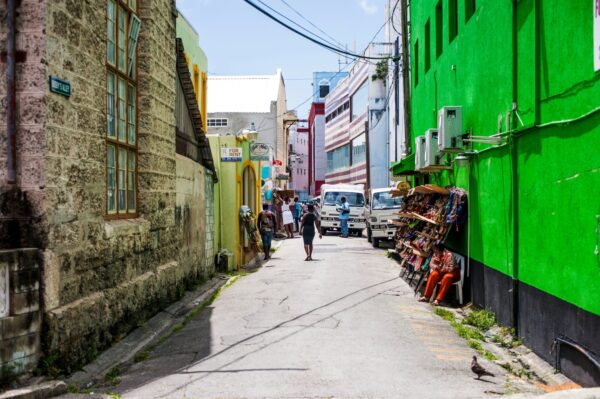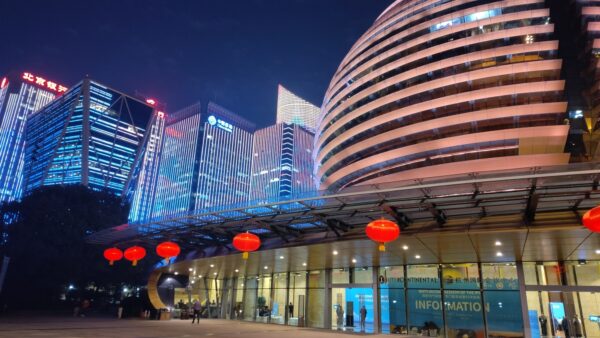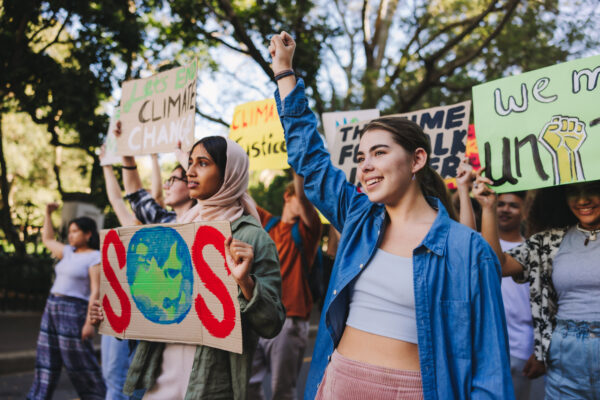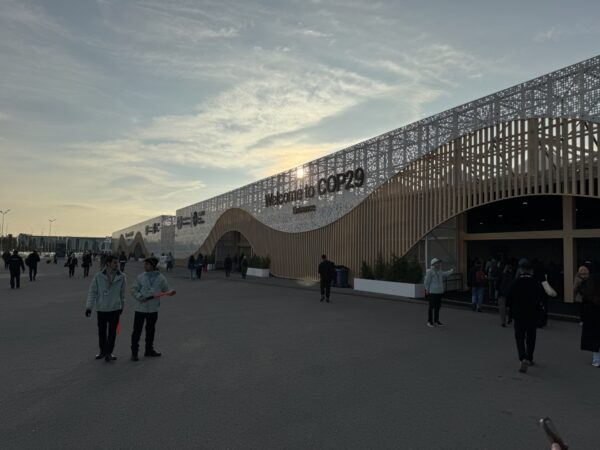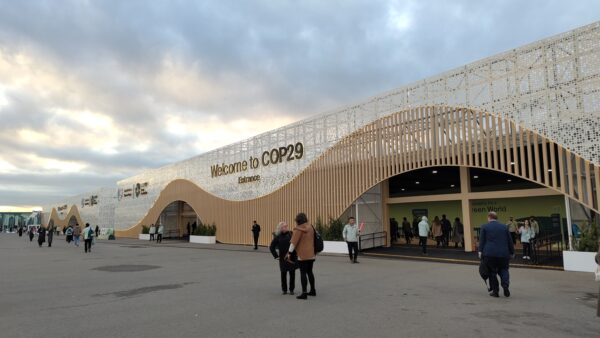IPCC input into the second Global Stocktake still on the table – but under threat
Uta Klönne, Dalia Kellou, Dr Fahad Saeed, Leon Charles, Manjeet Dhakal
No certainty on delivery of key reports for the second Global Stocktake as IPCC fails to agree on dates for AR7 at IPCC-63 in Lima
Share
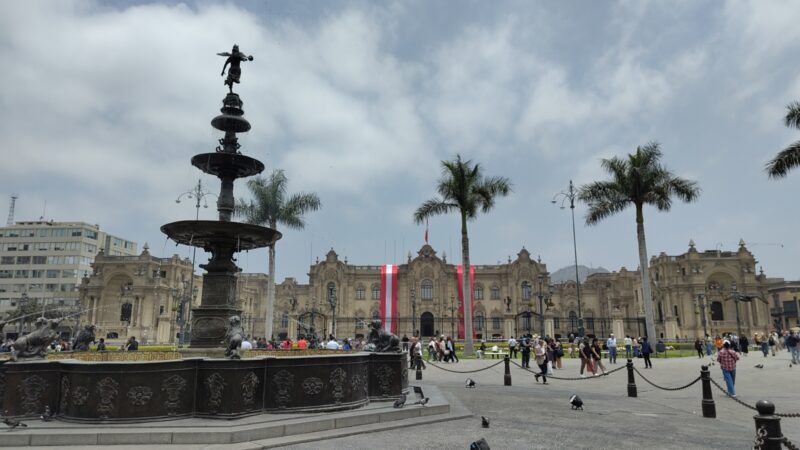
While Hurricane Melissa ripped through the Caribbean causing devastating losses, the 63rd Session of the Intergovernmental Panel on Climate Change (IPCC-63, Lima, Peru, 27–30 October 2025) failed to agree on delivery dates of the Seventh Assessment Report (AR7). This means that there is no certainty as to whether key reports will be able to inform the second Global Stocktake (GST2).
The Global Stocktake is a critical part of the Paris Agreement ambition architecture designed as a formal five yearly assessment informed by the best available science, the IPCC, of progress towards achieving the 1.5°C limit of the Agreement as well as its other objectives. The first Global Stocktake was informed by the IPCC AR6 and concluded at COP28 in 2023. This was vital to conclusions such as the call for a transition away from fossil fuels, tripling of renewables, large reductions in methane and other key elements. The failure to agree delivery dates for the AR7 risks especially the third Working Group Report on climate change mitigation getting pushed past the conclusion of GST2 in 2028 at UNFCCC COP33. It is clear that the world is far behind the level of action needed to limit warming to 1.5°C and it is critical that the most authoritative voice on climate science, the IPCC reports, input into the GST2 outcome to take steps to minimize the emerging overshoot of the Paris Agreement’s 1.5°C limit. Missing the GST deadline would prevent the IPCC from fully delivering on its mandate of policy relevance.
For now, the AR7’s work is able to continue, while unprecedented steps to improve inclusivity of developing countries continue to advance.
What was planned for Lima
Delegates arrived in Lima with unfinished business from earlier in 2025.
At IPCC-62 in Hangzhou, China in February, governments agreed the chapter outlines for the three Working Group (WG) reports (WGI on the physical science basis, WGII on impacts, adaptation, vulnerability, WGIII on mitigation), with unprecedented references for the assessment of equity and justice throughout the reports. However, they failed to endorse the timelines for their delivery. Governments also agreed to the majority of the outline of the Methodology Report on Carbon Dioxide Removal (CDR) Technologies and Carbon Capture Utilization and Storage (CCUS) but could not agree how to treat guidance on carbon dioxide removal from waterbodies.
IPCC-63's key tasks were therefore to complete the unfinished work from IPCC-62 – consisting of agreement on the full AR7 workplan and timelines, agreement on the budget, a decision on the remaining scope of the CDR/CCUS Methodology Report, and the consideration of progress, including for improving inclusivity and representation in AR7.
Crucial work in AR7 can advance, but lacks planning security
At IPCC-63, for the fourth session in a row, countries were not able to agree on the timelines for the delivery of the three Working Group reports. The timelines had been proposed by the Co-Chairs of the Working Groups, who are regionally representative elected experts. The development of timelines is a delicate balancing act that takes into account IPCC principles and past practice, designed to minimise periods of overlaps in governments’ reviews of reports, while ensuring sufficient time for the usual scientific rigour and efforts towards inclusivity and representation. Their adoption is usually a procedural matter which governments do not negotiate.
The proposed timelines would culminate in the approval plenaries of WG I, II, and III reports in May, June, and August of 2028, respectively. As a whole, AR7 would come in at around 6.5 years, around the same length of the previous AR5 and AR6 cycles. Crucially, the Working Group reports would be published before the conclusion of the second Global Stocktake at the end of 2028 – the crucial five-yearly ambition raising mechanism of the Paris Agreement which relies on the best available science of the IPCC.
At IPCC-63, similar to the three preceding plenaries, some countries, mainly Saudi Arabia, India, China, the Russian Federation, Kenya, and South Africa, opposed the proposed timelines, citing concerns about insufficient time for engagement. The majority of countries across geographies and levels of development, including Least Developed Countries (LDCs) and Small Island Developing States (SIDS), were in favour, citing adherence to IPCC principles. Their view is that inclusivity is improved through dedicated efforts rather than delay, and also highlighted the need for the IPCC’s best available science to inform GST2.
Subsequent rounds of adjustments, further extending the periods for government review and reducing overlaps in review periods, could not appease the opposing countries. This left the Chair of the IPCC to propose the mere adoption of the budget for 2026 as a last-resort measure. This was adopted on the final evening, in time for the planned closing of the session, allowing the final decisions to be taken with all countries still in the room.
With the 2026 budget agreed, the AR7 cycle can continue for now, including key author meetings next year. However, the failure to agree on the full workplan undermines the IPCC’s ability to function over the next years – at a fragile moment for multilateralism – and leaves scientists, authors, and government representatives without the planning certainty they need.
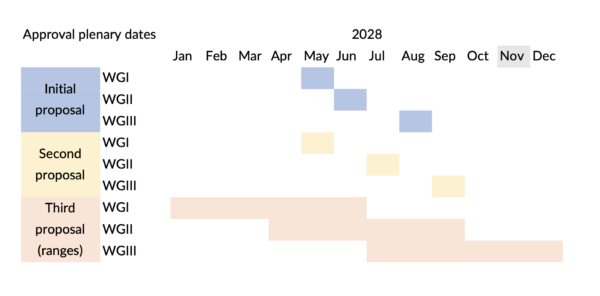
Speculative and risky marine CDR technologies will not be included in the CDR/CCUS Methodology Report
The Methodology Report on CDR/CCUS, slated for publication in 2027, will be a supplement to existing IPCC Guidelines for National Greenhouse Gas Inventories. Agreement on its outline was held up by discussions on whether or not to include a seventh volume on direct removal of CO2 from waterbodies and alkalinity enhancement of waterbodies.
The volume was critiqued by several countries including SIDS for a lack of scientific evidence on the mitigation efficacy of these removals, and concerns around adverse impacts on marine ecosystems – which puts them in conflict with existing international environmental agreements.
In the end, consensus was found to add a sufficiently restricted chapter on “CO2 removal through direct capture of CO2 from water already processed by inland and coastal facilities” to one of the previously agreed six volumes. Other more controversial technologies, such as ocean alkalinity enhancement, will be discussed in a future expert meeting co-organized by all Working Groups and the Task Force on National Greenhouse Gas Inventories to discuss risks and environmental impacts alongside potential mitigation benefits.
Unprecedented efforts to advance inclusivity and representation for developing countries
AR7 is undertaking unprecedented efforts for improving inclusivity and representation across the cycle, spanning more diverse literature to be assessed, a more diverse author pool than ever before, and outreach and training activities for those involved in all stages of the report production process.
For the first time, more than half of selected Working Group authors are from developing countries and economies in transition, and almost half are women. Funding has been secured to support authors and chapter scientists from these countries.
An expert meeting on Gender, Diversity and Inclusion in September 2025 explored with over 100 participants from all continents to create visions of an inclusive future. Further future workshops will explore how to engage diverse knowledge and assess grey literature and non-English literature, which will increase the representation of literature from developing countries. There is already more literature available now than there was for all of AR6, and the literature doubles every cycle. IPCC-63 also decided to hold an expert meeting on how to improve the regional climate information in AR7.
IPCC-63 considered a proposal to increase the funding for the participation in IPCC sessions from developing countries from the current one delegate to two delegates but deferred a final decision to a future plenary session but no later than IPCC-65. Approval of this proposal will be crucial for SIDS and LDCs that would typically not able to increase their delegation size unlike developed countries and large emerging economies.
IPCC input into GST2 still on the table, but under threat
Considering the devastating impacts of climate change today, efforts to keep global warming close to 1.5°C are more urgent than ever. The Global Stocktake and its five-year cycle were agreed under the Paris Agreement so that Parties to the UNFCCC can assess where we stand and what more needs to be done to get on track for 1.5°C. The first GST was a clear commitment to the 1.5°C limit, reflecting on the reduced impacts and risks at 1.5°C compared to higher warming levels, and on the emissions reductions needs for a 1.5°C pathway.
With the full AR7 workplan still not agreed, the timely completion of reports, and whether they will come in time to input into GST2, is in jeopardy.
For IPCC reports to be fully considered in GST2, they would need to be published in time to feed into the technical assessment phase of GST2, the timing of which is to be agreed at COP30 but which is likely to end in June 2028 at the latest, if past practice is adopted. However, GST allows that “critical information” such as IPCC reports can also be considered later – as long as they come out well before COP33 in 2028.
The first GST made extensive use of AR6, including on mitigation, adaptation, and loss and damage. The availability of AR6 was critical to GST1, informing the adoption of the energy package (para 28) with its key benchmarks on renewable energy and energy efficiency related to closing the gap towards 1.5°C. Furthermore, GST1 explicitly invited the IPCC to consider how best to align its work with the GST. This is why attempts by some countries to delay the timeline in a way that would prevent AR7 Working Group reports from being considered in the second Global Stocktake are very concerning.
The IPCC has a mandate of policy relevance, which does not run counter to efforts to improve inclusivity. Since AR6, in particular for WGIII, policymakers, researchers and others have called on scientific literature (e.g., here) for explicit consideration of equity and justice in long-term mitigation scenarios, as well as for greater transparency of such scenarios.
While WGIII reports have assessed all the available mitigation equity and justice literature from the start, new research is ongoing to integrate these issues better in integrated assessment models and scenarios. It remains difficult to reconcile this with transparency, since it would, for example, conflate cost-effectiveness with calculations reflecting particular interpretations of selected equity principles, blurring the lines to what extent each affects the total outcomes. As integrated assessment models are used to advise governments, stakeholders and the global community on when, where and how fast action needs to be undertaken, and who may need to pay for that action, and because each of these elements are influenced by different approaches to equity between countries and across generations, the nature and structure of scenarios run by these models has become controversial. As all research, this development takes time to make progress, and as always, the IPCC assessment cycle will assess literature published up to the cut-off date of that cycle.
AR7, as the cycle most focused on broadening participation and representation as well as enhancing the assessment of equity and justice especially in WGIII, must inform the Paris Agreement’s key ambition-raising processes to keep 1.5°C within reach in a timely fashion, and ensure GST2 is grounded in the most robust and representative scientific evidence. Timely publication thus remains paramount, and publication of IPCC reports should not be delayed to await outcomes of any particular research area.
Delaying the timeline does not inherently improve inclusivity—and would, in fact, deprive countries of the latest and most comprehensive science for decision-making at exactly the time when countries need it to increase ambition. It would also disadvantage LDCs and SIDS whose national policies and adaptation and resilience measures are informed by the guidance that comes out of the Global Stocktake.
The can has, once again, been kicked down the road. The next plenary IPCC-64 is scheduled for March 2026 in Bangkok, Thailand.






